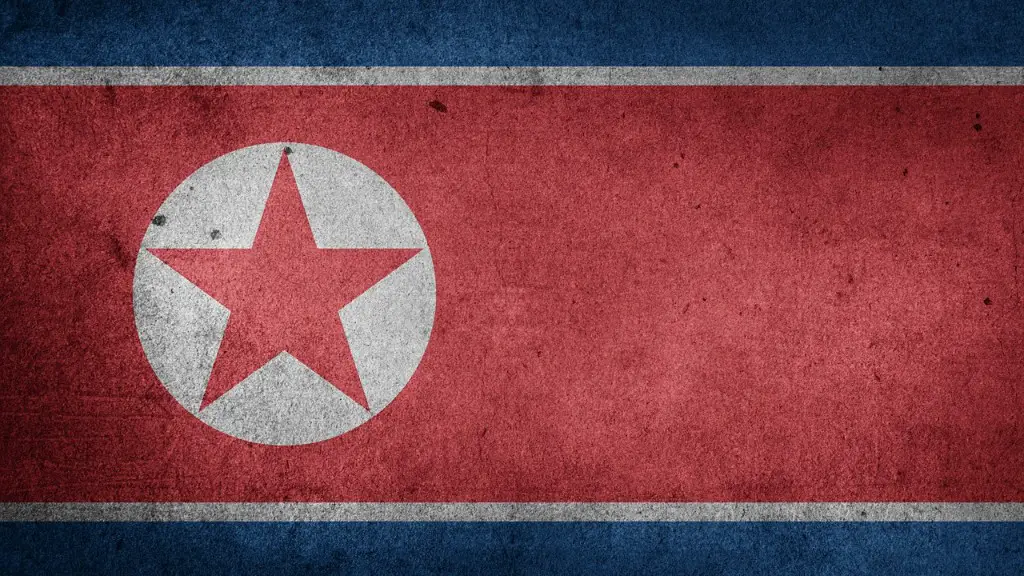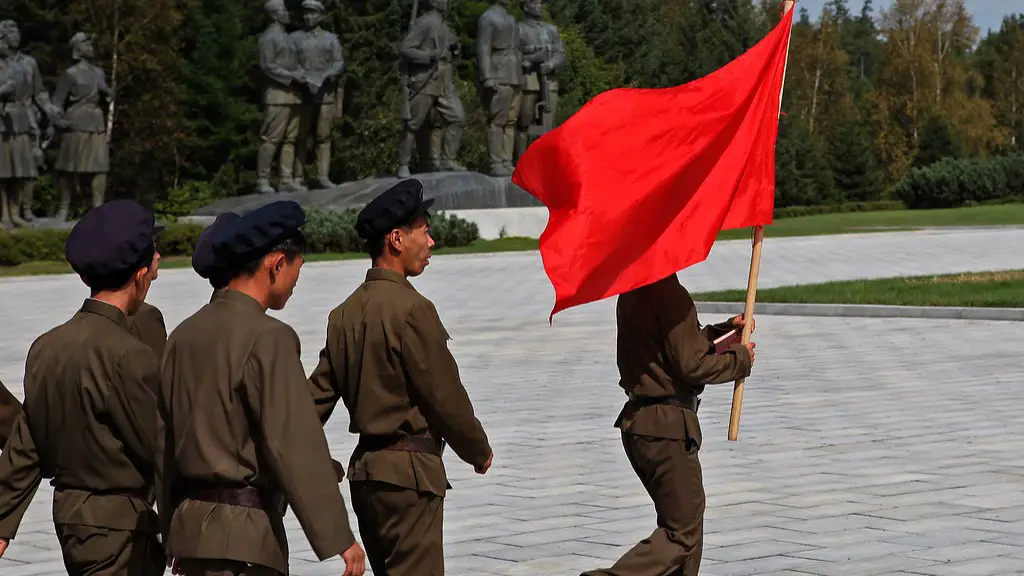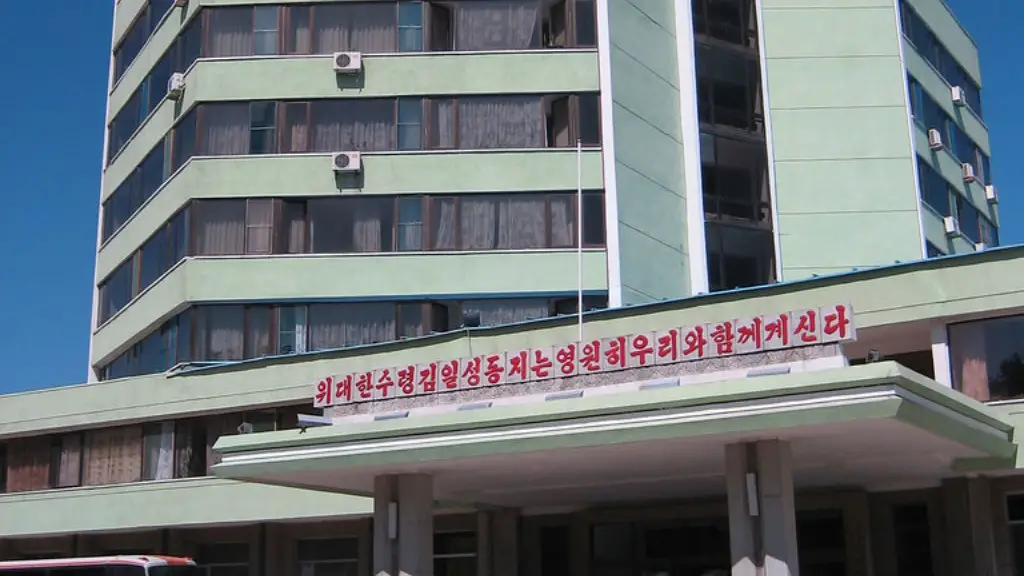Factors Influencing North Korea’s Nuclear Ambitions
North Korea’s drive to acquire nuclear technology to build up its arsenal has been controversial and has resulted in strained relations between the two Koreas, as well as global tension. There are multiple factors that have pushed North Korea to pursue weaponry, but in order to understand why North Korea needs nuclear weapons, it is important to look at the reasons for their acquisition.
The first factor influencing North Korea’s nuclear ambitions is its long-standing geopolitical rivalry with South Korea. The Korean War ended in a cease-fire agreement in 1953, which left the two Koreas technically still at war. Since then, North Korea has maintained a confrontational stance towards its southern neighbor. North Korea’s desire to arm itself with nuclear weapons can be seen as an attempt to gain leverage against South Korea and deter any potential aggression.
The second factor is North Korea’s desire for increased global power and recognition. Being a nuclear state offers North Korea a sense of prestige and greater geo-strategic importance on the international stage. Allowing North Korea to project itself as a major player in international disputes and negotiations, which could in turn give it a seat at the table in future international negotiations.
The third factor is North Korea’s internal politics. As a one-party state, North Korean leaders feel the need to demonstrate their strength to remain in power and maintain the loyalty of its citizens. Possessing nuclear weapons gives North Korea more leverage in its dealings with South Korea, China and the United States, which also serves to reinforce its internal policies and uphold the status quo.
Finally, North Korea’s nuclear ambitions may also be fueled by fears emanating from other nuclear powers. North Korea is surrounded by states that possess nuclear weapons, including China, Russia and the United States. North Korea perceives the presence of nuclear powers as a potential threat and may see the acquisition of nuclear weapons as a deterrent against possible military aggression.
North Korea’s Nuclear Program
North Korea’s nuclear program can be dated back to the mid-1970s, when North Korea began acquiring nuclear technology from the Soviet Union. Later, in the late 1980s, North Korea joined the Nuclear Non-Proliferation Treaty and in the early 1990s, signed two agreements with the United States and South Korea. The agreements stipulated that North Korea would abandon its nuclear weapons program and allow international inspections to verify these obligations.
Despite these agreements, North Korea continued to pursue its own nuclear ambitions. In 2006, North Korea conducted its first nuclear test, followed by a second in 2009 and two more in 2013 and 2016. The United States, South Korea and the international community have responded with diplomatic sanctions, economic embargoes and military exercises in an attempt to put an end to North Korea’s nuclear program.
Despite these efforts, North Korea has made significant advances in its nuclear program. In 2017, North Korea began testing long-range ballistic missiles, and in 2018, North Korea conducted its most powerful nuclear test to date. North Korea has also declared that it has attained “state-level nuclear capability” and is now a full-fledged nuclear state.
Challenges for North Korea and the Global Community
North Korea’s pursuit of nuclear weapons has resulted in significant challenges for both North Korea and the global community. On the one hand, North Korea risks further isolation from the international community if it continues to develop nuclear weapons and fails to cooperate with the United Nations. This could result in further economic sanctions, which could have a severe impact on the North Korean economy and lead to more poverty and suffering.
On the other hand, North Korea’s possession of nuclear weapons poses a threat to global security. North Korea could use its nuclear weapons to pursue aggressive political goals or launch an attack on its neighbors, which could have devastating consequences. Additionally, other nations may be encouraged to pursue their own nuclear programs if North Korea succeeds in maintaining theirs.
Options for Dealing with North Korea’s Nuclear Program
The international community is faced with the difficult task of finding a way to effectively deal with North Korea’s nuclear program. Traditional approaches such as economic sanctions and military exercises have failed to produce real results, and there is no easy solution in sight.
At this point, diplomatic negotiations seem to be the best option for resolving the crisis. Countries such as China and the United States have recently begun talks with North Korea in an attempt to promote dialogue and find a peaceful resolution. However, it remains to be seen whether these efforts will yield tangible results.
North Korea’s Need for Nuclear Weapons
Ultimately, North Korea’s decision to pursue nuclear weapons is driven by multiple factors. North Korea’s long-standing geopolitical rivalry with South Korea, its desire for increased global power and recognition, its internal politics, and its fears of other nuclear states have all served to fuel its nuclear ambitions. These ambitions have led to significant challenges for both North Korea and the global community and finding a solution to the crisis has proven to be a difficult task. Nevertheless, diplomatic negotiations seem to be the best chance for resolving the crisis and promoting peace on the Korean Peninsula.
Impact of North Korea’s Nuclear Weapons Program
While North Korea’s nuclear weapons program has had a number of negative consequences, it has also had positive effects. North Korea’s nuclear ambitions have helped to strengthen its alliance with China, which has provided economic and political support to North Korea. The acquisition of nuclear weapons has also helped to improve North Korea’s bargaining power in international negotiations and disputes.
Moreover, the development of North Korea’s nuclear weapons could serve to deter potential aggression from other nuclear powers, such as the United States and China. The presence of nuclear weapons in North Korea may also reduce the chances of the Korean War being reignited, ensuring a peaceful environment on the Korean Peninsula.
Efforts to Curb North Korea’s Nuclear Program
In response to North Korea’s nuclear program, many countries have taken steps to curb it. The United Nations imposed economic sanctions on North Korea in an attempt to pressure the country to abandon its nuclear ambitions. The United States, South Korea and China have also jointly implemented sanctions and military exercises in an effort to send a signal to North Korea.
Additionally, the United States and China have recently begun diplomatic talks with North Korea in an attempt to find a diplomatic solution. The aim of these talks is to provide North Korea with economic incentives in exchange for ending its nuclear program. However, there is still much work to be done before a lasting solution can be found.
Implications of North Korea’s Nuclear Program
North Korea’s nuclear program has had far-reaching implications for the region and the global community. Firstly, the possession of nuclear weapons by North Korea has increased tensions between the two Koreas, as well as between North Korea and other nuclear powers such as the United States. Furthermore, the presence of nuclear weapons in North Korea has reduced the possibility of conflict between the two Koreas, as well as with other regional powers, as the use of nuclear weapons could have devastating consequences.
Moreover, North Korea’s nuclear program has worked to undermine the Nuclear Non-Proliferation Treaty, which has been an important part of the global nuclear arms control regime. North Korea’s development of nuclear weapons has also set a precedent for other countries to develop their own nuclear capabilities, which could further destabilize the global nuclear order.
Finally, North Korea’s nuclear program has increased the risk of nuclear proliferation and the potential for nuclear terrorism. North Korea’s nuclear weapons and technology could be acquired by terrorist groups or other hostile actors, creating a serious threat to global security.
The Way Forward
Going forward, there are a number of steps that need to be taken in order to address North Korea’s nuclear program. Firstly, it is important to find a way to peacefully resolve the crisis and avoid any further military escalation. Secondly, it is necessary to put pressure on North Korea to abandon its nuclear weapons program and negotiate a deal that would involve economic concessions in exchange for the elimination of North Korea’s nuclear weapons and technology.
Thirdly, it is essential to create an international coalition that would be committed to ensuring North Korea complies with its obligations and does not further develop its nuclear program. Finally, it is important to promote dialogue and understanding between North Korea and its neighbors, as well as the international community, in order to find a peaceful resolution to the crisis.


